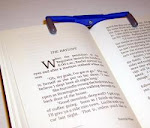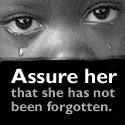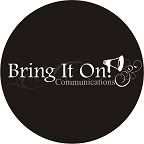The latest book that I have read, ‘Unburdened: The Secret to Letting God Carry the Things That Weigh You Down’
Here is the synopsis of this book:
In his Word, God promises us freedom from worry. Wouldn’t it be nice if we actually believed him?
How would your life look if you trusted God to take care of your problems? What would happen if you took the concerns that grip you, that keep you awake at night, that clench your stomach in knots…and truly handed them over to his keeping?
Like no other writer can do, bestselling author Chris Tiegreen opens your eyes and heart to a better, more weightless way to live. Unburdened won’t teach you how to avoid responsibility or hide from serious issues. Neither is it about how to escape and go hide on a beach – though having a few palm trees around never hurts.
won’t teach you how to avoid responsibility or hide from serious issues. Neither is it about how to escape and go hide on a beach – though having a few palm trees around never hurts.
It’s about taking the burdens you currently carry and making them much, much lighter.
It’s about transferring the weight of your responsibilities from the weak shoulders of your flesh to the strong fingertips of God.
It’s about learning to live in deep-down, heart-level freedom.
And no one who reads Unburdened will walk away unchanged.
will walk away unchanged.
Here is the biography of this author:
Chris Tiegreen has inspired thousands of people through The One Year At His Feet Devotional , The One Year Walk With God Devotional
, The One Year Walk With God Devotional , The One Year Worship the King Devotional,
, The One Year Worship the King Devotional, and The One Year Wonder of the Cross Devotional
and The One Year Wonder of the Cross Devotional , as well as his books Fixing Abraham
, as well as his books Fixing Abraham , Feeling Like God
, Feeling Like God , Violent Prayer
, Violent Prayer and Creative Prayer
and Creative Prayer . His experiences as a missionary, pastor, journalist, photographer, and university instructor bring a unique perspective to his writing. He and his wife, Hannah, live in the Atlanta area where he is currently the editor for indeed magazine at Walk Thru the Bible.
. His experiences as a missionary, pastor, journalist, photographer, and university instructor bring a unique perspective to his writing. He and his wife, Hannah, live in the Atlanta area where he is currently the editor for indeed magazine at Walk Thru the Bible.
In the Introduction, Chris explains that he wrote this book as much for himself as for others:
This book won’t come across as a “how-to” manual. I’ve already declared how unqualified I am to approach the subject this way. No, this is more like a series of personal reflections on what it’s like to struggle with heavy baggage and, more important, what it’s like to release the weight of that baggage to someone much more capable of handling it. These words express the deep wrestling of a lifetime. And as I’ve freely admitted, this isn’t an issue I’ve mastered. It’s an ongoing process. But it’s a process that most of us need to learn to share with each other. What follows is my attempt to do just that – to share where I’ve been. I hope you’ll read it simply as one freight train telling other freight trains about the track he’s been traveling. (p. xviii)
In the Chapter entitled ‘Freedom,’ Chris shares that the apostle Peter learned to not be stressed but instead to rest in Jesus. Chris looks at the absurdity of stress in the life of the believer:
Do you see the absurdity of our stress? We are very busy and anxious about the very things God has already said he’s taking care of. We are relentless in our pursuit of what he has already promised to deliver. We micromanage the concerns we’ve allegedly asked him to handle. That’s about as ludicrous as a confirmed lottery winner anxiously watching the news to see if his number has come up. God has already guaranteed what we need. What are we worried about? (p. 5)
That’s a great question!
We really need to believe God’s promises:
When we really get this, we relinquish our fear, which frees us to seek God above all else. We can be totally preoccupied with the things of his Kingdom because “all these things” – the necessities of life – will be added to those who fully invest themselves in eternity. We have to understand that he is devoted to putting us in the right places at the right times and stocking us with all we need for all he has called us to do. We have to be able to rest in that fact. Any stress about whether or not Jesus will take care of us is a stark rebuttal to his words. Somehow we got comfortable with being living contradictions: Christians who “believe” in the words of Jesus but worry anyway. That makes no sense. (p. 7)
Chris realizes the idea of not worrying seems unlikely; fortunately God gives us power through the Holy Spirit:
It seems unrealistic, doesn’t it? And it would be – if God didn’t step in with supernatural strength to be able to handle such circumstances. But I think that’s one of the main reasons he didn’t just remove all adversity from us when we come to him in faith and ask for help. He leaves us in the midst of our adversity for a reason, not so we can be overcome by it, but so we can overcome it in him. There’s a strange and remarkable interplay between our needs and God’s supply in which he gets glorified by stepping into our circumstances and carry our burdens for us. He doesn’t take the burdens away, but he lightens them by this strength. And in the process, he gets to show who he is. (p. 16)
Chris explains why we are always so discontent and insecure:
Something drastic happened at the Fall. We lost our identity, our security, and our position. God was still watching over us, but our relationship with him was fractured. We were under his care, but not within the safety of the Garden. We lost sight of who we are and focused on new concerns like survival. Our personalities had to adapt to a strange new sense of shame. Our instincts began to function from the basis of fear. We entered a competitive, high-stakes, every-man-for-himself environment. Instead of just being, we began wandering. Instead of exercising dominion over the earth, we began scraping to get by. Instead of living in victory, we got a taste of futility. We became alienated and insecure. And in order to compensate for our alienation and insecurity, we became emotionally needy and self-seeking.
Jesus came to save us from all of that, but it’s hard to leave a life of anxieties and insecurities behind us. The only way we can is to fully embrace the redemption he offers, and that often takes time. Even after we accept him as our Savior, those old wounds and fears that motivate us linger. As a result, instead of receiving the extravagant love and acceptance of God, we desperately seek affirmation through the approval that comes with status and accomplishment; we try to establish our security through saving and other protective measures; and we try to find love through dependent, unhealthy relationships. We want the world and the people around us to fill up all those things that are lacking deep in our souls. (pp. 23-24)
Many of us – me included – can get pretty riled up when driving. Chris explains why that can happen:
I’ve found that the morning commute, like life, can be stressful. But I’ve also found that most of the stress comes from my own attitude toward other drivers. I get really offended, for example, at the pushy people who want to cut in front of me without signaling, or gesturing (nicely) or warning me at all. My hostility toward them, which usually turns to disgust for the rudeness of the entire human race, can set me on edge before I even get to work – even though their actions have set me back only by approximately two seconds. For some reason, I seem to think that a few seconds here and there make an enormous difference in how much I’m going to accomplish on a given day. Perhaps that’s how I keep inching closer toward the bumper in front of me – a behavior that has been scientifically proven both to increase stress dramatically and to save absolutely no time whatsoever. I have perspectives and habits that add burdens without accomplishing anything good.
I like using the highways as a parable for life because nearly every human emotion can emerge when we’re behind the wheel. We can relax and enjoy the breeze, get frustrated and curse at our problems, celebrate the sights we see and the passengers we’re with, look at others with either compassion or anger, lament the minor tragedies of flat tires and the major tragedies of serious accidents, and so on. This metaphor has a way of putting my own issues into perspective. I’ve found that attitudes I stuff down in normal life comes out much more readily and honestly when I’m behind the wheel… My temperament on the highway is a snapshot of the bigger picture, a diagnostic tool with startling accuracy. (pp. 45-46)
I will admit I have a problem with pride. Chris explains what God thinks of it:
Throughout Scripture, God defends the humble but opposed the proud. For some reason, many of us have a deep-seated drive to elevate ourselves. The fundamental problem is that we don’t trust him to support us. What we don’t realize is that this drive directly opposes the way God wants to work with us. Our regard for our own images and status brings us into conflict with him, but he provides ample strength and status to those who humbly depend on him. In other words, the way up in the Kingdom of God is to go down. God’s desire is for us to live completely unassuming, unpretentious lives and let him lift us up whenever and however he wants. (p. 63)
I appreciate the fact that the Lord gives us so much help; we just need to accept the gift!
After providing descriptions of several burdens (i.e., regrets, fear of loss, urgency and busyness, etc…), he discussed the common denominator in all of them:
Do you see a common thread running throughout these burdens? The key variable when we don’t experience freedom from them is a lack of trust. Whenever we feel the weight of our burdens, there’s some aspect of God’s character or some truth from his Word that we aren’t fully trusting. That’s the area of our lives we need to focus on if we’re ever going to feel free. In order to go through life with the lightness God wants us to have, we have to actually believe what he has told us. (p. 67)
The issue of trust – or the lack thereof – is the primary reason why we continue to carry our burdens when the Lord is waiting for us to give them to Him:
It would be nearly impossible to overstate the warfare we will face on this point. Trust is an epic battle in the minds of most believers. It’s a brutal battle that goes way back to the first temptation, that disaster in the Garden that introduced is to all of the burdens in the first place. The world and the enemy seem to conspire relentlessly to create fears, doubts, and mistrust in our minds. If we are ever going to get to a place of trusting God – the kind of trust that allows us to experience deep-rooted peace – then we will have to contend for it. We will have to learn to vehemently resist any suggestion that God won’t come through for us. We will have to fight in order to rest. (p. 71)
Jesus was a perfect exemplar for living a burden-free life:
Though he was God, he did not demand and cling to his rights as God. He made himself nothing; he took the humble position of a slave and appeared in human form. And in human form he obediently humbled himself even further by dying a criminal’s death on a cross. Because of this, God raised him up to the heights of heaven and gave him a name that is above every other name, so that at the name of Jesus every knee will bow, in heaven and on earth and under the earth, and every tongue will confess that Jesus Christ is Lord, to the glory of God the Father. (p. 113)
In the Chapter entitled ‘Perspective,’ Chris mentions the comedian Louis C.K. on a late-night talk show talking about how “everything is amazing right now, and nobody’ happy.” Here is that clip; Louis makes a lot of great points!:
Chris expounds on this theme:
That’s how perspective works. Your problems and issues look the way they do to you because of where you sit. Under different circumstances or at different times, they might not carry the same weight. And if that’s true, then it must be possible to lighten our loads by changing the way we view them. (p. 149)
Joy, rejoicing and celebration need to be a big part of our lives:
God promises to do more than we can ask or imagine – a promise that, not coincidentally, is the culmination of passage in which Paul is overflowing with praise [Romans 6:11]. That kind of attitude is invincible, and God’s good purposes in the life of someone with that attitude are impossible to thwart.
That is why joy, rejoicing, and celebration are supposed to be such integral parts of our relationship with God. We think circumstances are the battlefield, and then joy usually follows when circumstances work out. But it’s really the other way around. Worship and joy are the battlefield, and then circumstances usually shift when the attitudes of the heart work out. The circumstances may not change immediately or dramatically – though they very often do, in miraculous and surprising ways – but God always responds to a right heart by stepping into those things the heart have been concerned about. One way or another, he intervenes on behalf of those who look to him in praise and gratitude. He has emphatically promised to do so throughout Scripture, and he always keeps his promises. (p. 185)
One of the biggest take-aways I have gleaned from this book is the concept of the ‘exchanged life.’ Instead of focusing on our goals and dreams, we need to remember that we exchanged our life for the life of Christ when we accepted Him as our Savior. Chris describes how the life of Hudson Taylor, the missionary to China, after he made the decision to live the ‘exchanged life’:
He was a joyous man now, a bright happy Christian. He had been a toiling, burdened one before, with latterly not much rest of soul. It was resting in Jesus now, and letting Him do the work – which makes all the difference. Whenever he speaks in meetings after that, a new power seemed to flow from him, and in the practical things of life a new peace possessed him. Troubles did not seem to worry him as before. He cast everything on God in a new way. (p. 198)
Wow – that sounds like heaven on earth!
In the conclusion, Mr. Tiegreen reiterates what God wants to do for us:
I would love to hear God say in any given situation, “You don’t have to fight this battle.” And I believe that he does say that to us anytime we feel overwhelmed by our burdens. We may have to go out and take our positions and stand, but we don’t have to do what only he can do. We don’t have to arrange circumstances or manipulate people or worry about all the ways we can’t do either of those things. We take our positions, look to him, do only what he tells us to do, and leave the rest to him. That the message of Scripture, and that’s his desire… His desire for his peoples is that we not be overwhelmed but live life fearlessly, faithfully, and freely. He wants us to fully depend on him, and like Jehoshaphat, have rest on every side. (p. 211)
This book awakened something in me – a need to shed my burdens at the foot of the cross. I plan on meditating on and referencing the truths in this book over and over. I strongly recommend this book to anyone who wants to live a more peaceful, restful, and worshipful life. I thank Chris for sharing these truths with us!
You can order this book here .
.
This book was provided by SaltRiver, an imprint of Tyndale House Publishers, for review purposes.




























.jpg)







2 comments:
Thank you for directing me here. I needed this, today. I have also joined to follow and look forward to getting to know you!
Blessings,
andrea
Hi Andrea -
Nice name! : ) Thanks for swinging by; glad you liked the sound of 'Unburdened.' God shows us we need right when we need it, doesn't He?!
Thanks for following, and I look forward to getting to know you as well!
Blessings -
Andrea
Post a Comment